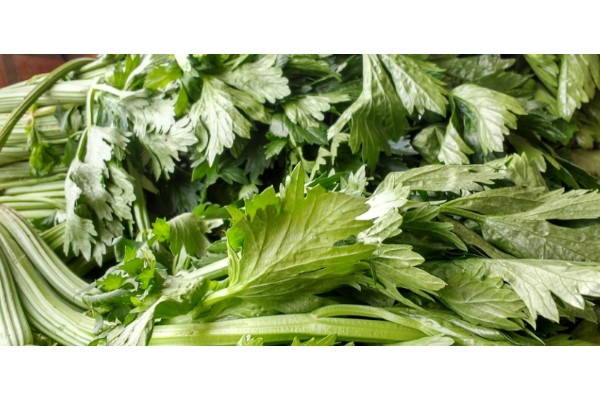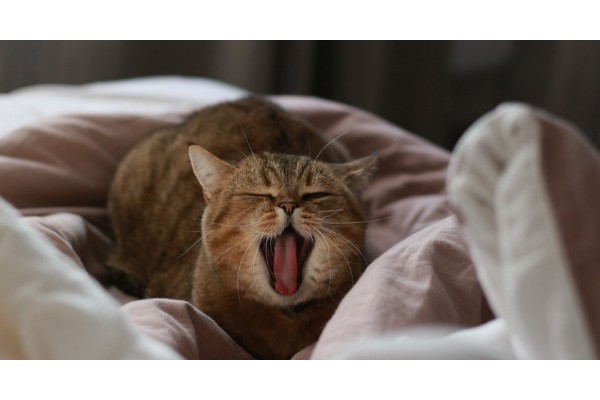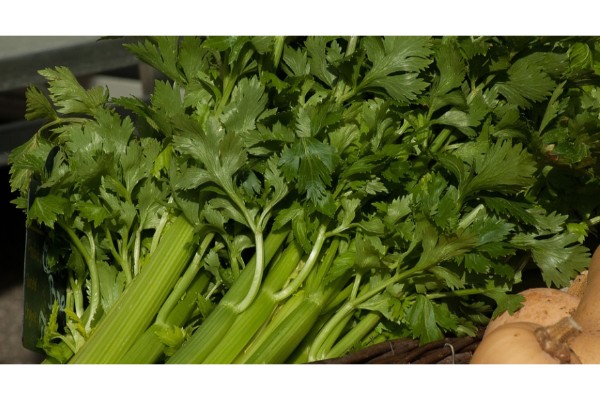Yes, cats can eat celery! Celery cannot, however, take the place of a balanced diet. Celery should only be used as a special treat for cats, not as a significant portion of their daily diet, according to pet parents. Cats must have diets that are primarily composed of meat because they are obligate carnivores.
Table of Contents
Is Celery Safe For Cats?
Yes! Celery is in no way toxic to cats and in fact, is actually probably good for them in smaller amounts.
Though it is important to remember that cats are carnivores and fruits/vegetables should only make up around 5% of their total dietary intake.
This makes celery a good and healthy treat every now and then, but you should not supplement a cat’s normal diet with any fruit or vegetable. That being said, however, celery provides a number of benefits to your cat’s digestive health as you will read later.
Nevertheless, each cat will react differently. Some people might not even look at the celery, much less consume it. Instead of actually enjoying a bite for nutrition, some people might even play with the celery.
If your cat is not interested, never force them to eat vegetables. Remember, cats are carnivores which mean that typically speaking vegetables aren’t on their normal diet.
What About Cat Celery Leaf?

Just like with the stalks, leaves are perfectly fine for your cat to consume. The leaf might even cause them to behave catnip-like.
After eating celery leaves, kittens in particular are prone to becoming hyperactive. While you may find this strange to observe, it is common for cats and kittens in particular to be fascinated by these leaves.
Don’t panic if you see your cat playing in celery like a young kitten just discovering the world.
Health Benefits For Cat Eating Celery
Good For The Stomach!
Just like with humans, celery promotes digestive health in most animals including cats. This is due to the substantial amount of phytonutrients present in even a single stalk of celery.
In order to protect themselves from predators or other environmental harm, plants frequently produce chemicals known as phytonutrients.
Some animals can benefit from these phytonutrients health benefits, which include supporting digestive health. They are especially known for their anti-inflammatory properties, which can reduce inflammation in the digestive tract.
Celery stalk has approximately 25 different types of anti-inflammatory compounds which can promote both a healthy digestive tract and help to prevent other diseases such as arthritis or other inflammatory conditions within organs.
Celery is a good option for digestive health and general health because of this, in addition to having a lot of antioxidants.
Foods and other substances contain chemical compounds called antioxidants that help stop oxidative damage caused by free radicals.
Recalling our chemistry lessons, free radicals are particles with unpaired electrons. The free radical becomes, well, radical as a result of this! Free radicals are frequently unstable, but in larger concentrations, they can harm DNA and cells.
Antioxidants typically guard against oxidative harm to organs, including those in the digestive system. Celery contains a whopping 15 different types of antioxidants that support the physical defense.
The presence of pectin-based polysaccharides, which have been demonstrated to specifically promote stomach health, is perhaps most crucial for your cat.
By fostering the stomach’s digestive lining, these chemicals aid in preventing ulcers in the stomach. This allows your cat to have a healthier digestive system as a whole.
A healthier digestive system is also supported by celery’s high fiber and water content.
You should always seek professional advice before making any significant dietary changes for your cat or substituting celery for a recommended dietary practice.
The Side Effects Of Cat Eating Celery
As mentioned before celery should be given to your cat only in moderation and it should not be used to supplement medically prescribed care or a medically prescribed diet.
If you give your fluffy friend too much celery, they might get an upset stomach. Additionally, cats’ skin irritation has been known to occur after they come into contact with celery leaves.
Although results may vary among cats, if your cat consumes too much celery they may experience the following.
- Upset Stomach
- Vomiting
- Diarrhea
- Food-Borne Illnesses
Different cats, their intake of celery, tolerance to it, metabolism, and their age all affect how severe the side effects are.
As you will see later, it can be challenging to tell these side effects apart from food allergies, so it’s crucial to monitor your pet carefully and take appropriate action. If your cat has any celery-related side effects, taking probiotics may be helpful.
Is Celery Safe For Kittens?

Different reactions to celery may occur in kittens and adult cats. This is due to the fact that a kitten is typically younger and smaller than an adult cat.
They should be given much less celery than you would give an adult counterpart because they are more likely to experience side effects.
They are also more susceptible to food-borne illnesses, which are uncommon but could exist on celery’s surface. Before giving vegetables to your pets, always wash them.
How Much Celery Can A Cat Eat?
Cats don’t need 2000 calories a day as humans do. They typically only require 200, which isn’t a lot when compared to the diet of an adult human.
A single stalk of celery only contains about 10 calories, which is a blessing. Thus, unless you have plans to feed your cat 20 or more sticks of celery, you probably won’t go beyond that amount.
Having said that, remember to always account for the calories in any additional meals or treats you may be giving your furry friend. Although 10 calories may not seem like much, they make up 1/20th of the daily caloric requirement for cats.
Best Ways To Feed Your Cat Celery
Rarely will your cat go crazy from chewing on an entire stalk of celery? After all, cats frequently favor small nibbles. For this reason, it’s best to chop your celery before attempting to give it to your cat.
If your cat enjoys crunchy treats, it might also enjoy them raw. However, not all cats will find the taste or texture appealing. The fact that celery can be added to food or used as a garnish does not imply, however, that your pet does not like it. Remember that celery shouldn’t be used as a meal replacement; rather, it should only be added to high-quality foods like Instinct Original Grain-Free Pate.
Additionally, you can give your cat celery leaves. These are the celery stalks’ leafy tops, and they might be simpler to feed to your cat. They should, however, be finely chopped, just like the stalks themselves.
Can Cats Have A Celery Allergy?
Just like people, cats can experience food allergies, so it’s crucial to always seek medical advice if you have any doubts about your cat’s allergy or if you are already aware that it exists.
Although they are much less frequent than food-based allergies in cats, environmental allergies do exist.
However, because there aren’t any quick diagnostic tests available, it can be challenging to identify a cat with a food allergy.
In addition, many of the signs of food allergies are frequently the same as those of cats who eat too much of a particular food that is normally healthy.
As you will see, many of the symptoms are similar to those of cats who eat too much celery, even though celery is not the cause of the symptoms.
If you think your cat might be having an allergic reaction, keep an ear out for the following symptoms.
- Whining, coughing, and sneezing.
- Runny Nose
- Diarrhea
- Upset Stomach
- Skin Irritation
- Rash
- both internal and external inflammation
- around the paws or other extremities swelling
You should contact a veterinarian right away if you believe your cat is allergic to celery or any other food item. It is crucial to closely monitor for allergies because reactions can range from mild to fatal.
The Causes Of Cat Allergies

Allergies are the result of the immune system attacking substances that have been consumed or substances found in the environment.
The reactions you see happen because the body misinterprets food or other substances as viral, bacterial, or chemical aggressors.
Contrary to popular belief, allergies are not a condition that people or animals, in general, are born with. Instead, allergies develop later in life when the immune system is exposed to potential allergens.
You must therefore constantly pay close attention to how your pet responds to food. Even foods that they have in the past eaten without incident can turn into allergens in the future. This means that even though they might not currently have a celery allergy, they could develop one in the future.
FAQs
Is Celery Juice Safe For Cats?
This is a very interesting topic right now! Celery juice is safe for your cat to consume, however, you do have to take concentration into consideration.
Juices tend to be far more concentrated than the actual vegetable, and as a result, you should only ever give your cat very small amounts of celery juice.
If you’re thinking about using this technique, start out by giving your cat very small amounts. Keep an eye and ear out for any reactions or side effects while attempting to gauge their tolerance.
Should I Give My Cat Cooked Celery?
Although cooked celery can be given to cats, cooking removes the majority of the vegetable’s nutrients, as is the case with many other vegetables. So, raw celery is the best option to provide your cat with the most health benefits.
Remember to always thoroughly clean celery before feeding it to your pet, whether you choose to serve it raw or cooked.
Conclusion
It’s true that your cat can eat celery! In small doses, it’s even beneficial to them.
However, since cats are carnivores, they might or might not be interested in celery. But there is nothing wrong with treating your furry little friend to a stalk of celery every once in a while if they do enjoy it.
Just make sure to only give it in moderation and to always consult a professional before putting your fluffy friends on any major dietary change.
